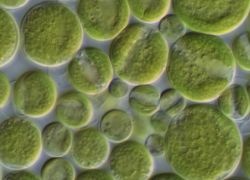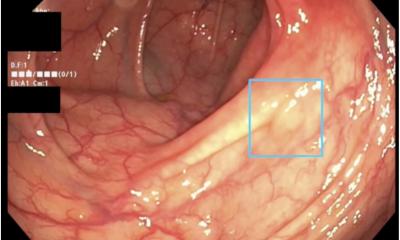Alga may help
A European study involving 500,000+ people aged between 25-70 years, in 20 European countries, has confirmed a connection between dietary fibre consumption and colon cancer protection.

In the study, carried out by the WHO and the European Prospective Investigation into Cancer and Nutrition (EPIC), the top 20%, with the highest consumption of dietary fibre - about 35g per day - showed 40% less risk than people consuming a daily average of 15g.
In a USA study, similar results were obtained. When 34,000 healthy people were compared with 36,000 patients with benign intestinal polyps, it was found that the risk for patients on a high fibre diet was reduced by 25% - particularly if fruit, cereals and products derived from grain were consumed.
Certain dietary supplements based on algae, such as Bio Reu-Rella made from Chlorella pyrenoidosa (a freshwater alga), contain a high percentage of fibre and provide a balance of lactobacillaceae, streptococci, bifidus and bacteria producing vitamin B12. The alga’s anti-tumour effects have been reported following animal tests. (Source: Janina Klein. Lancet, May 2003)
01.07.2003





